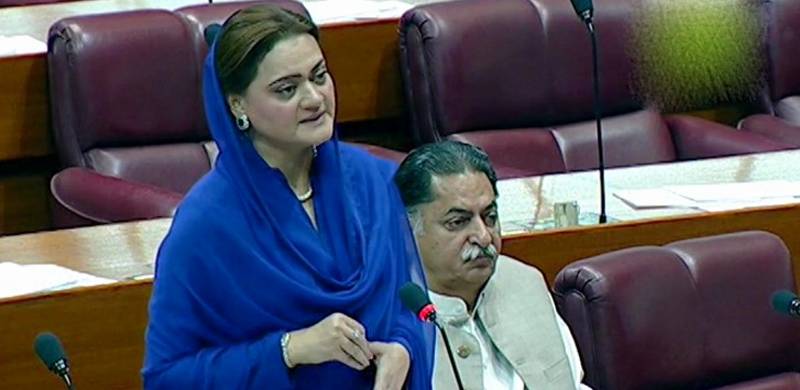
Federal Minister for Information and Broadcasting Marriyum Aurangzeb has announced that the government is going to ‘reviving' the National Counter Terrorism Authority (NACTA), and will also be conducting an assessment of the National Action Plan to address the resurgence of terrorism in the country.
Addressing the National Assembly today (Friday), she said that this decision was being taken due to the rise of terrorism once again in Pakistan, adding that there were some things that needed to be noted first.
She said that during the four years of the previous Pakistan Tehreek-e-Insaf (PTI) government, not a single meeting of the NACTA, which is chaired by the prime minister, had been called.
"In 2014, Nawaz Sharif had prepared Pakistan's first national security policy," she said, referring to the National Action Plan that was unanimously passed after the horrific 2014 Army Public School (APS) attacks in 2014.
She claimed that the plan was the first time federal and provincial governments, law enforcement agencies and the military had all come together and united to fight terrorism. However, according to her, that plan remained ignored for four years due to the 'ego of one man', referring to former prime minister Imran Khan.
"Whether it was water, polio or terrorism, that man wasn't ready to talk to anyone. He never found it necessary," she said.
She claimed this was also the reason for the 'detachment' between the federal and provincial governments, saying that in the case of terrorism, the role of the provincial governments is the most important.
"The entire mechanism of coordination [between the provinces and the Centre] has been outlined in it [the National Action Plan]," she said, adding that this was why a decline in terrorist activities was seen during 2015 and 2018.
She claimed that the main reason for the suicide blast at Karachi University was that Imran had paused communication and financial allocation to the plan, because he thought it was "a waste of time".
Addressing the National Assembly today (Friday), she said that this decision was being taken due to the rise of terrorism once again in Pakistan, adding that there were some things that needed to be noted first.
She said that during the four years of the previous Pakistan Tehreek-e-Insaf (PTI) government, not a single meeting of the NACTA, which is chaired by the prime minister, had been called.
"In 2014, Nawaz Sharif had prepared Pakistan's first national security policy," she said, referring to the National Action Plan that was unanimously passed after the horrific 2014 Army Public School (APS) attacks in 2014.
She claimed that the plan was the first time federal and provincial governments, law enforcement agencies and the military had all come together and united to fight terrorism. However, according to her, that plan remained ignored for four years due to the 'ego of one man', referring to former prime minister Imran Khan.
"Whether it was water, polio or terrorism, that man wasn't ready to talk to anyone. He never found it necessary," she said.
She claimed this was also the reason for the 'detachment' between the federal and provincial governments, saying that in the case of terrorism, the role of the provincial governments is the most important.
"The entire mechanism of coordination [between the provinces and the Centre] has been outlined in it [the National Action Plan]," she said, adding that this was why a decline in terrorist activities was seen during 2015 and 2018.
She claimed that the main reason for the suicide blast at Karachi University was that Imran had paused communication and financial allocation to the plan, because he thought it was "a waste of time".

